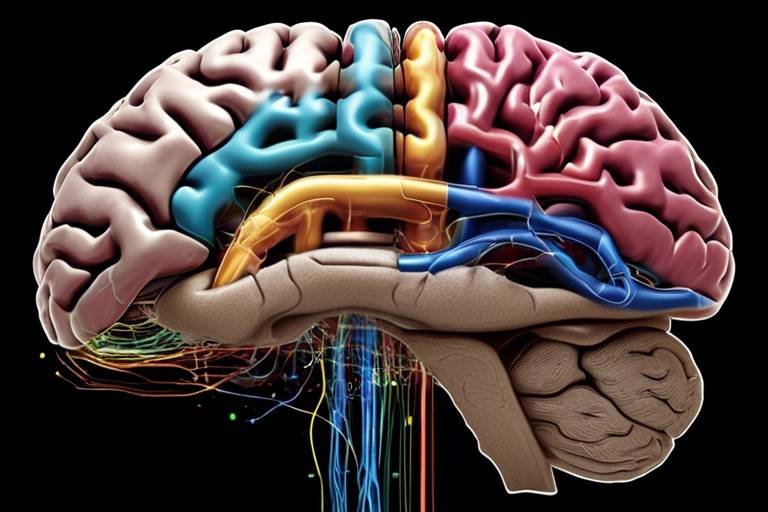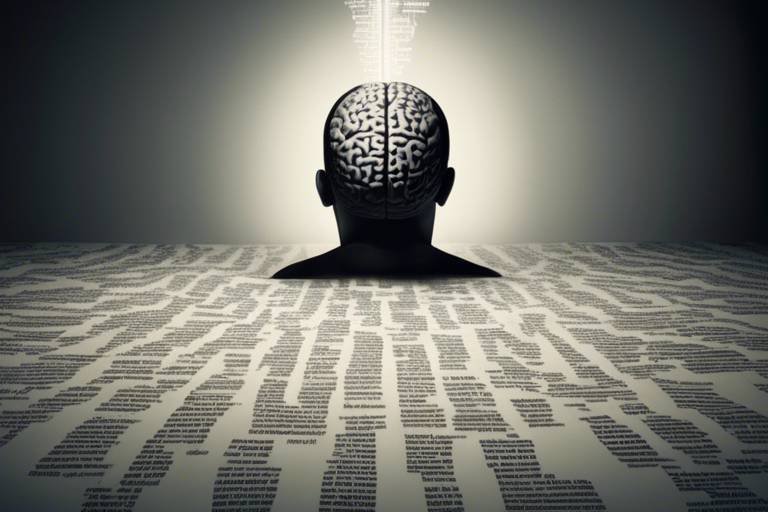How Conscious Are We About Our Consciousness?
Have you ever paused in the middle of your day, overwhelmed by the sheer complexity of your thoughts? It's a fascinating phenomenon, isn't it? The very essence of our being hinges on something so intricate yet so profoundly simple: consciousness. But what does it truly mean to be conscious? Are we fully aware of our awareness? This article dives deep into the nature of consciousness, peeling back layers to reveal how it shapes our daily lives, influences our decisions, and ultimately defines who we are.
Consciousness is not just a buzzword tossed around in philosophical debates; it's a fundamental part of our existence. In the simplest terms, consciousness can be described as our awareness of ourselves and the world around us. However, this definition barely scratches the surface. To truly understand consciousness, we must explore its various interpretations and the theories that have emerged over centuries.
At its core, consciousness encompasses a range of mental states, from the mundane to the profound. Psychologists and philosophers alike have wrestled with the concept, leading to a variety of definitions. Some argue that consciousness is merely the ability to experience sensations and perceptions, while others suggest it's a deeper understanding of self-awareness and reflective thought. This ongoing debate raises intriguing questions: Is consciousness an all-or-nothing phenomenon, or does it exist on a continuum? Can we ever fully grasp the essence of our consciousness?
Consciousness exists on a spectrum, much like a rainbow of awareness. At one end, we have basic sensory perceptions—those fleeting moments when we notice the warmth of the sun or the sound of laughter. As we move along the spectrum, we encounter higher-order reflective thoughts, where we ponder our existence and purpose. Each level of awareness significantly impacts our experiences and interactions with the world. For instance, have you ever noticed how a simple change in mood can shift your perspective on a situation? That's consciousness at work.
To fully appreciate the nuances of consciousness, we must distinguish between the subconscious and conscious mind. The conscious mind is what we actively engage with; it's our thoughts, decisions, and reflections. In contrast, the subconscious mind operates beneath the surface, influencing our behaviors and reactions without our direct awareness. Imagine driving a car: while you're focused on the road (conscious), your subconscious is busy recalling past experiences and habits that guide your driving behavior.
Our subconscious mind plays a profound role in shaping our thoughts and actions. It operates like a hidden puppet master, pulling strings that dictate our responses to various stimuli. For example, have you ever found yourself reacting emotionally to a situation without understanding why? This reaction often stems from subconscious processes, which can include past traumas, learned behaviors, or even societal conditioning. Recognizing this influence can empower us to make more conscious choices in our lives.
To enhance our consciousness awareness, we can adopt various techniques that promote mindfulness and reflection. Practices such as meditation, journaling, and deep breathing exercises allow us to connect more deeply with our thoughts and feelings. These techniques serve as tools to sharpen our awareness, helping us to navigate the complexities of our consciousness with greater ease. Have you ever tried sitting in silence, observing your thoughts? It can be a powerful way to uncover the layers of your mind.
Throughout history, philosophers have offered diverse perspectives on consciousness, each contributing to our understanding of this enigmatic concept. From Descartes' famous assertion, "I think, therefore I am," to more contemporary views that explore consciousness as a social construct, these theories challenge us to rethink our assumptions about awareness. They invite us to consider questions like: What does it mean to be truly conscious? Can consciousness exist independently of the physical body?
Emotions are intricately linked to our conscious experience, acting as both guides and barriers to our awareness. Our emotional states can color our perceptions, shaping how we interpret experiences and make decisions. For instance, when we're happy, the world seems brighter and more inviting, but in moments of sadness, even the simplest tasks can feel overwhelming. Understanding the interplay between emotions and consciousness can lead to greater self-awareness and improved mental health.
Being aware of our emotions is crucial for maintaining mental well-being. Emotional awareness involves recognizing and understanding our feelings, which can help us navigate life's challenges more effectively. Strategies for regulating emotions, such as cognitive reframing and mindfulness practices, empower us to respond thoughtfully rather than react impulsively. Imagine being in a heated argument; taking a moment to breathe and reflect can transform the outcome significantly.
Our emotional states can dramatically shift our conscious experience. For example, when we're anxious, our focus narrows, and we may miss out on the beauty around us. Conversely, feelings of joy can expand our awareness, allowing us to connect more deeply with others and the environment. Understanding this dynamic helps us recognize how our emotional landscape influences our perception of reality, ultimately guiding our interactions with the world.
Consciousness is pivotal in shaping our personal identity. Our self-awareness and conscious experiences contribute to our understanding of who we are over time. Each moment of reflection, every decision made, and all the memories created weave together to form the tapestry of our identity. Consider how your life experiences shape your beliefs and values—this ongoing process is a testament to the power of consciousness in defining who we are.
Memory is intricately linked to consciousness, serving as a bridge between our past experiences and present awareness. Our memories influence our conscious thought processes and provide a sense of continuity in our personal identity. Think about how recalling a cherished moment can evoke strong emotions and reshape your current perspective. This connection between memory and consciousness highlights the importance of our past in shaping our present and future.
Exploring altered states, such as dreams or drug-induced experiences, can provide unique insights into consciousness. These states challenge our traditional understanding of awareness and reality, prompting us to question the very nature of existence. For instance, have you ever woken from a vivid dream, struggling to distinguish it from reality? Such experiences remind us that consciousness is not a fixed state but a fluid and dynamic aspect of our being.
- What is consciousness? Consciousness refers to our awareness of ourselves and our surroundings, encompassing thoughts, feelings, and perceptions.
- How does the subconscious mind influence our behavior? The subconscious mind shapes our reactions and decisions based on past experiences and learned behaviors, often without our conscious awareness.
- Can mindfulness practices enhance consciousness? Yes, techniques like meditation and mindfulness can increase our awareness and help us connect more deeply with our thoughts and emotions.
- What role do emotions play in consciousness? Emotions significantly impact our conscious experience, influencing how we perceive situations and make decisions.
- How does memory relate to consciousness? Memory provides continuity to our conscious experience, shaping our identity and influencing our present awareness.
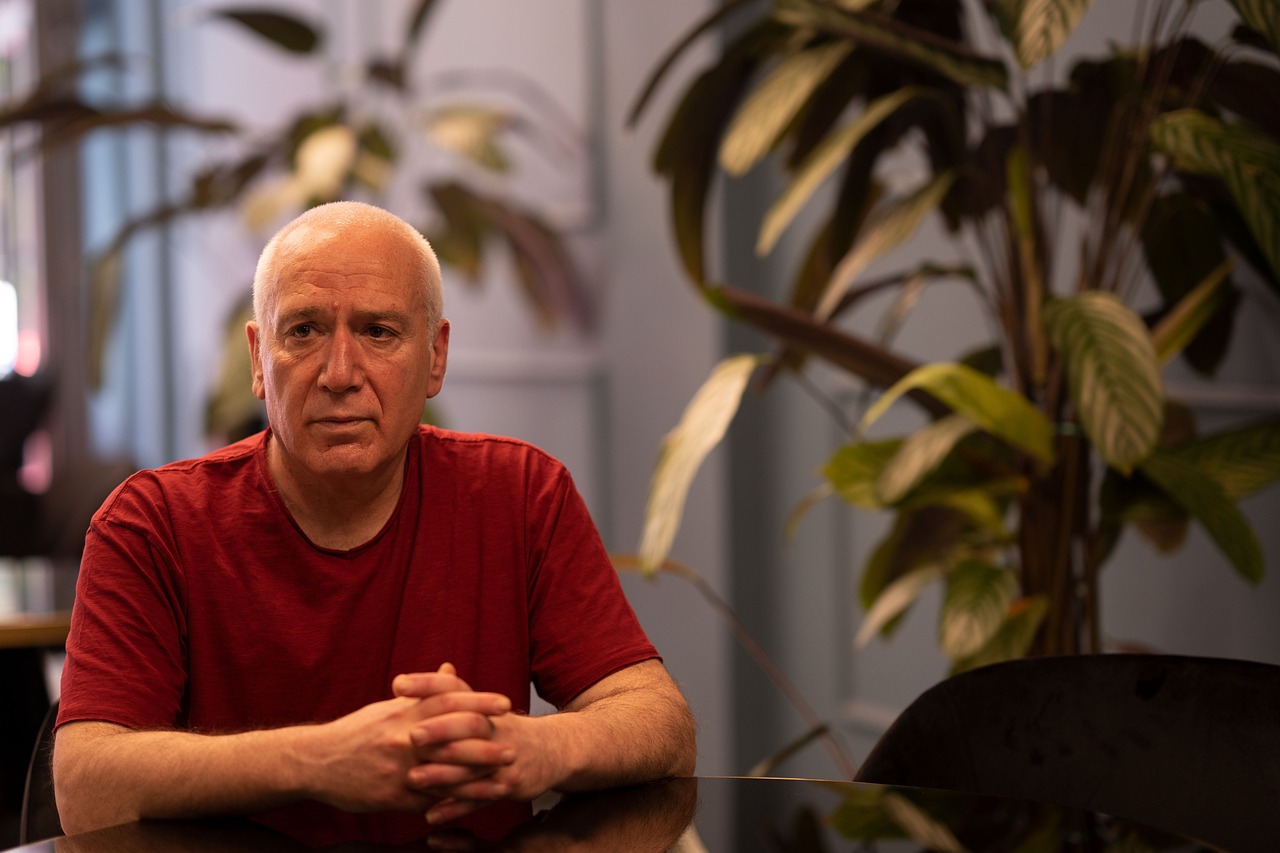
The Definition of Consciousness
Understanding consciousness is like trying to catch smoke with your bare hands; it’s elusive and complex. At its core, consciousness refers to our awareness of ourselves and our environment. But what does that really mean? In both psychological and philosophical contexts, consciousness has been dissected and defined in numerous ways. It can be seen as the state of being awake and aware of one’s surroundings, thoughts, and feelings. However, it’s much more than just a simple awareness.
Philosophers and scientists have long debated the nature of consciousness, leading to various interpretations. For instance, some argue that consciousness is a byproduct of brain activity, while others suggest it is a fundamental aspect of existence itself. Here are a few key theories:
- Materialism: This perspective posits that consciousness arises from physical processes in the brain.
- Dualism: Proposed by René Descartes, this theory suggests that the mind and body are separate entities, and consciousness exists independently of physical processes.
- Panpsychism: An intriguing viewpoint that suggests consciousness is a fundamental feature of all matter, not just living beings.
Each of these theories offers a unique lens through which we can examine our conscious experience. For example, if we consider consciousness as merely a byproduct of brain activity, it raises questions about free will and personal agency. Are our thoughts and actions predetermined by neural processes, or do we have the power to shape our own destinies?
Moreover, consciousness is not a static state; it exists on a spectrum. Think of it like a dimmer switch where the light can be turned up or down. At one end, you have basic sensory awareness—like noticing the warmth of sunlight on your skin. On the other end lies higher-order reflective thought, where you engage in deep self-reflection or philosophical pondering. This variability in consciousness affects how we experience the world around us.
In summary, the definition of consciousness is multifaceted and continues to evolve as we delve deeper into the realms of psychology and philosophy. It encompasses everything from our basic sensory perceptions to our profound existential reflections. As we explore this topic further, we will uncover how our understanding of consciousness shapes our daily lives and interactions with the world.

Levels of Conscious Awareness
When we talk about consciousness, it’s important to realize that it’s not a one-size-fits-all concept. Consciousness exists on a spectrum, and understanding this spectrum can significantly enhance our grasp of our mental experiences. Imagine consciousness as a vast ocean, where the surface is what we are aware of at any moment, while the deeper waters represent layers of awareness that we may not immediately perceive. At the shallow end, we find basic sensory perceptions—those fleeting moments when we react to stimuli without much thought. For instance, when a loud noise startles you, your immediate reaction is a raw, instinctual response. However, as we dive deeper, we encounter higher levels of awareness that involve more complex cognitive processes.
At the core of this spectrum are three primary levels of conscious awareness:
- Basic Awareness: This is your immediate sensory experience. It’s the feeling of the sun on your skin or the taste of your morning coffee. It’s instinctive and often automatic.
- Reflective Awareness: This level involves a more thoughtful engagement with our experiences. Here, we analyze and reflect on our thoughts and feelings. For example, after a conversation, you might ponder your emotions and the implications of what was said.
- Meta-Awareness: This is the awareness of your own awareness. It’s a profound level where you can observe your thoughts and feelings as if you are an outsider looking in. This can lead to insights about your behavior and motivations.
Each of these levels influences how we navigate our daily lives. For example, when you’re driving a car, your basic awareness helps you respond to traffic signals and obstacles. However, your reflective awareness kicks in when you consider the implications of your driving habits or how they affect your safety and that of others. Finally, in moments of meta-awareness, you might question why you feel anxious during long drives, leading to deeper self-understanding.
Understanding these levels can also help us recognize when we might be operating on autopilot. Have you ever driven somewhere and suddenly realized you don’t remember the last few minutes? That’s your basic awareness at work, while your reflective and meta-awareness took a backseat. By bringing more attention to these higher levels of consciousness, we can enhance our decision-making processes and improve our emotional regulation.
In a world filled with distractions, cultivating a deeper awareness can lead to a more fulfilling life. Techniques such as mindfulness and meditation serve as powerful tools to help us navigate these levels of consciousness. They encourage us to slow down, observe our thoughts, and become more attuned to our experiences. By doing so, we can transform our relationship with ourselves and the world around us.
In summary, the levels of conscious awareness are not just academic concepts but practical frameworks that can enhance our everyday lives. By recognizing where we are in this spectrum, we can make more informed choices and foster a deeper understanding of our own consciousness.
- What is consciousness? Consciousness is the state of being aware of and able to think about one's own existence, thoughts, and surroundings.
- Why is understanding levels of consciousness important? Understanding these levels helps us navigate our experiences and improve our decision-making and emotional regulation.
- How can I enhance my awareness? Techniques such as mindfulness and meditation can significantly improve your conscious awareness.

Subconscious vs. Conscious Mind
The distinction between the subconscious and conscious mind is a fascinating topic that has intrigued psychologists, philosophers, and everyday individuals alike. To put it simply, the conscious mind is like the tip of the iceberg that is visible above the water, while the subconscious mind is the massive portion submerged beneath the surface, influencing our thoughts, feelings, and behaviors in profound ways. But what exactly do these two terms mean, and how do they interact?
The conscious mind is responsible for our thoughts that we are actively aware of at any given moment. It’s where we process information, make decisions, and engage in rational thinking. For instance, when you are reading this article, your conscious mind is at work, analyzing the words, understanding their meaning, and forming opinions about the content. It’s the part of your mind that can say, “I’m hungry,” or “I need to finish this task.”
On the other hand, the subconscious mind operates in the background, managing a plethora of functions without our direct awareness. It is where our memories, habits, and automatic responses reside. Think of it as a vast storage room filled with everything from childhood memories to learned behaviors and ingrained beliefs. For example, you might not consciously think about how to ride a bike; your subconscious mind takes over, allowing you to perform the task without much thought. This is why habits can be so difficult to break—your subconscious is programmed to follow established patterns.
The interaction between the conscious and subconscious mind is crucial for our daily functioning. Often, our conscious thoughts can influence our subconscious beliefs. For instance, if you consciously tell yourself, “I am capable and confident,” over time, this positive affirmation can seep into your subconscious, altering your self-image and behavior. Conversely, the subconscious can also influence the conscious mind in unexpected ways. Have you ever made a decision that felt instinctual, only to later realize it was based on a past experience you weren't consciously aware of? That’s your subconscious at play!
| Aspect | Conscious Mind | Subconscious Mind |
|---|---|---|
| Awareness | Fully aware of thoughts and actions | Not aware, operates automatically |
| Function | Decision-making, problem-solving | Memory storage, habits, instincts |
| Processing | Logical and analytical | Emotional and associative |
| Time Orientation | Present-focused | Past-focused, influences future behavior |
Understanding the nuances between these two aspects of our mind can lead to greater self-awareness and personal growth. By recognizing how much of our behavior is driven by subconscious processes, we can begin to challenge and reshape our beliefs and habits. Techniques such as mindfulness and meditation can help bridge the gap between the conscious and subconscious, allowing us to become more aware of our internal dialogues and emotional responses.
In conclusion, while the conscious mind is essential for our day-to-day tasks and decision-making, the subconscious mind plays a pivotal role in shaping who we are and how we react to the world. By exploring this dynamic relationship, we can unlock deeper layers of our consciousness and ultimately enhance our understanding of ourselves.

Influence of the Subconscious
The subconscious mind is a powerful force that operates behind the scenes of our conscious awareness. Imagine it as the backstage crew of a grand theater production—while the actors (our conscious thoughts) are front and center, it’s the crew that ensures everything runs smoothly. This hidden part of our mind processes vast amounts of information, influences our decisions, and shapes our behaviors without us even realizing it. Have you ever found yourself reacting to a situation in a way that seems completely out of character? That could be your subconscious at play, pulling strings based on past experiences, beliefs, and emotions.
One fascinating aspect of the subconscious is how it stores memories and learned behaviors. For instance, when you learn to ride a bike, your conscious mind is focused on balancing and pedaling. But after repeated practice, the act becomes second nature, managed by your subconscious. This transition from conscious effort to subconscious automation is vital for efficiency in our daily lives. It allows us to multitask and engage in complex activities without overthinking them.
Moreover, the subconscious mind is often a repository for our fears, desires, and unresolved conflicts. Think of it as a vast ocean, where the surface may appear calm, but beneath lies a tumultuous current. These underlying feelings can occasionally bubble to the surface, influencing our thoughts and actions in unexpected ways. For example, someone might have a fear of public speaking that stems from a subconscious belief formed during childhood. This belief can manifest as anxiety, even if the individual is unaware of its origin.
To better understand the influence of the subconscious, consider the following points:
- Dreams: Our dreams often reveal subconscious thoughts and emotions. They can serve as a window into our inner selves, highlighting unresolved issues or desires.
- Habits: Many of our daily habits are governed by subconscious processes. For instance, the way we react to stress or comfort ourselves often comes from learned behaviors that we don’t consciously think about.
- Intuition: That gut feeling you sometimes get? It’s often your subconscious mind drawing on past experiences to guide you in decision-making.
Understanding the influence of the subconscious can empower us to take control of our lives. By becoming more aware of these underlying processes, we can challenge negative beliefs, reshape our habits, and ultimately enhance our conscious experience. Engaging in practices such as mindfulness and journaling can help bring subconscious thoughts to the surface, allowing us to confront and address them. This journey of self-discovery can lead to profound personal growth, making us more attuned to our true selves.
- What is the subconscious mind? The subconscious mind is the part of our mind that operates below our level of conscious awareness, influencing our thoughts, feelings, and behaviors.
- How does the subconscious affect my daily life? The subconscious influences your habits, reactions, and even your decision-making processes, often without you realizing it.
- Can I access my subconscious mind? Yes, techniques such as meditation, mindfulness, and journaling can help bring subconscious thoughts and feelings to your conscious awareness.
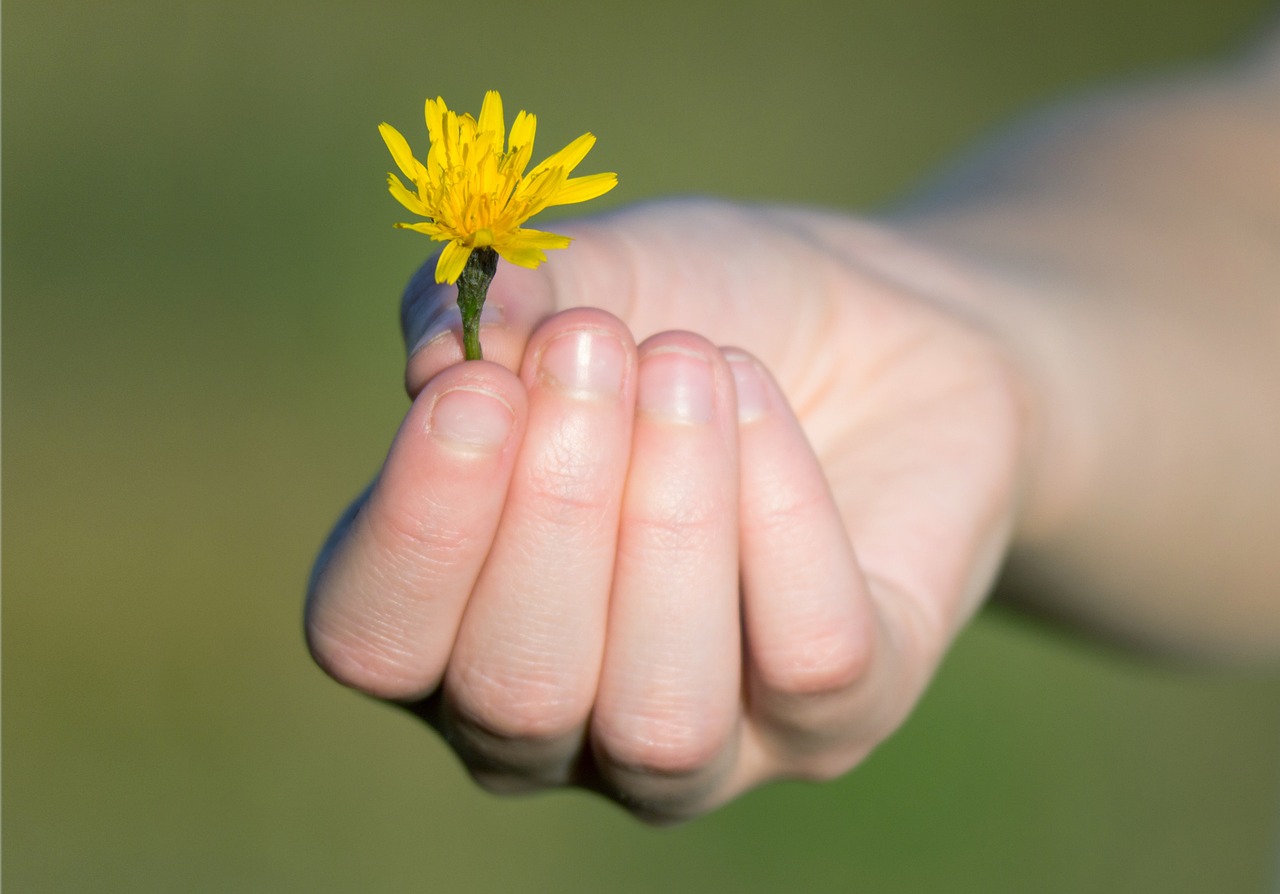
Awareness Techniques
In our fast-paced world, where distractions seem to be lurking around every corner, enhancing our consciousness can feel like a daunting task. However, there are several effective that can help us become more attuned to our thoughts, emotions, and surroundings. These techniques not only promote mindfulness but also empower us to live more fulfilling lives. Have you ever stopped to wonder how often you are truly present in the moment? By implementing these practices, you can cultivate a deeper awareness of your consciousness.
One of the most popular methods to enhance awareness is mindfulness meditation. This practice encourages individuals to focus on their breath and observe their thoughts without judgment. By dedicating just a few minutes each day to mindfulness meditation, you can learn to recognize your thoughts and feelings as they arise, which can lead to a greater understanding of your conscious experience. Imagine standing on the shore, watching the waves come and go; that’s how thoughts can be—temporary and ever-changing.
Another effective technique is journaling. Writing down your thoughts and feelings allows you to reflect on your experiences and gain insights into your subconscious mind. This practice can be as simple as jotting down a few sentences each day or maintaining a detailed diary. The act of writing can serve as a mirror, reflecting your inner world and helping you to identify patterns and triggers in your emotional landscape.
Additionally, body awareness exercises can significantly enhance your consciousness. Techniques such as yoga and tai chi encourage individuals to connect their minds with their bodies, promoting a sense of grounding and presence. These practices not only improve physical health but also foster a deeper connection to your conscious self. When you engage in these exercises, you might feel as if you are tuning into a radio station that plays the soundtrack of your life, allowing you to hear and understand the nuances of your thoughts and feelings.
Lastly, nature immersion can be a powerful tool for enhancing awareness. Spending time in nature allows us to disconnect from the chaos of daily life and reconnect with our surroundings. Whether it’s a hike in the mountains or a stroll in the park, nature has a way of grounding us and bringing our consciousness back to the present moment. Just think of it as a reset button for your mind, clearing away the clutter and allowing you to focus on what truly matters.
In conclusion, becoming more aware of our consciousness is not an overnight process; it requires practice and dedication. By incorporating techniques like mindfulness meditation, journaling, body awareness exercises, and nature immersion into our daily routines, we can enhance our conscious experience and lead more fulfilling lives. So, why not take a moment today to explore these techniques and see how they can transform your awareness?
- What is mindfulness meditation? Mindfulness meditation is a practice that involves focusing on the present moment and observing your thoughts and feelings without judgment.
- How can journaling improve my awareness? Journaling helps you reflect on your thoughts and emotions, providing insights into your subconscious and enhancing self-awareness.
- What are body awareness exercises? Body awareness exercises, such as yoga and tai chi, connect the mind and body, promoting a sense of presence and grounding.
- Why is nature immersion beneficial? Spending time in nature helps reduce stress, enhances focus, and allows you to reconnect with your surroundings, promoting greater awareness.
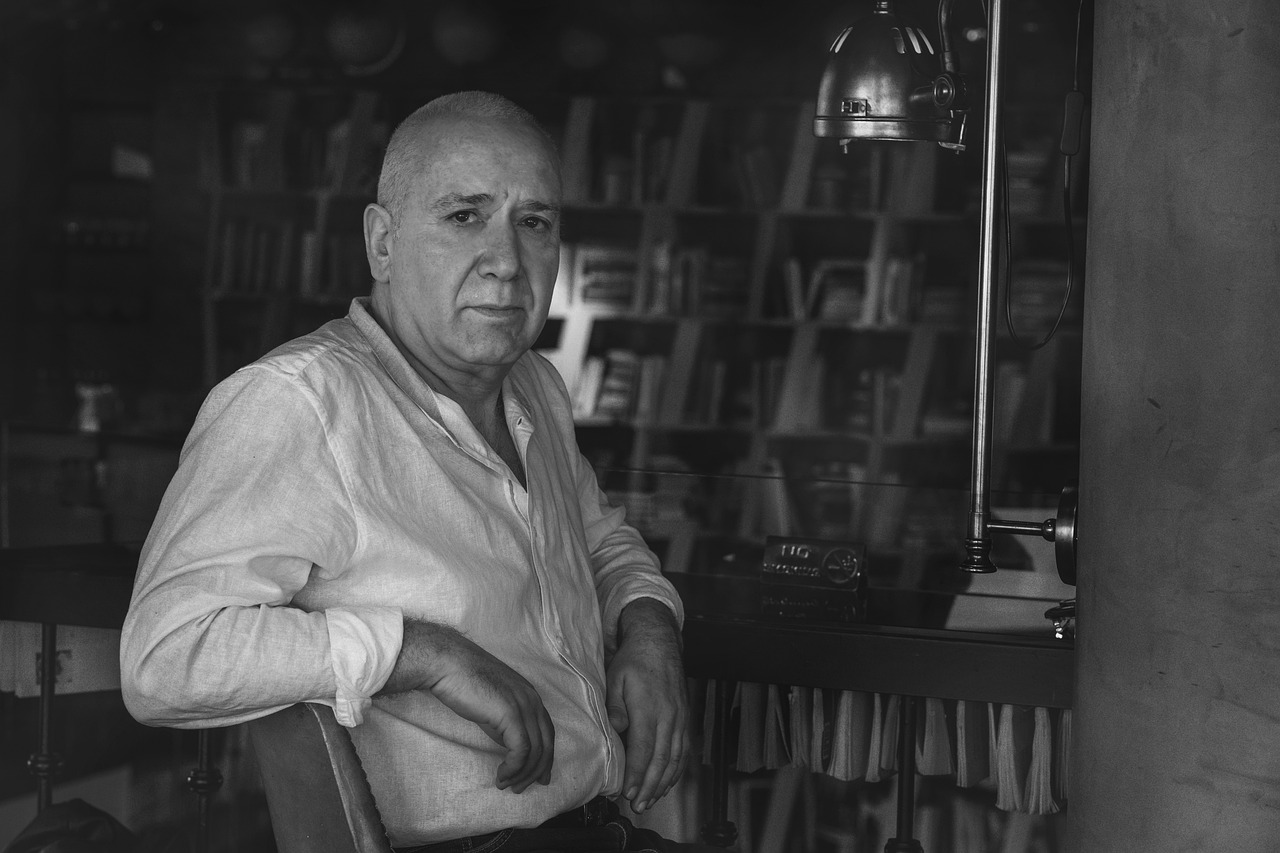
Philosophical Perspectives on Consciousness
When we dive into the vast ocean of consciousness, we find ourselves surrounded by a multitude of philosophical perspectives that have emerged over centuries. Each philosopher has cast their unique light on this intricate subject, shaping our understanding of what it means to be conscious. One of the most prominent figures in this discourse is René Descartes, who famously declared, "Cogito, ergo sum" (I think, therefore I am). This assertion emphasizes the undeniable connection between thought and existence, suggesting that our very awareness of our thoughts is proof of our being.
Then there’s David Hume, who challenged the notion of a permanent self. He argued that consciousness is a collection of fleeting impressions and perceptions rather than a stable entity. This perspective raises intriguing questions: if our thoughts and experiences are constantly changing, what does that mean for our identity? Are we merely a series of moments strung together, or is there something deeper that binds us?
Moving forward in time, we encounter Immanuel Kant, who introduced the idea that consciousness is not just a passive reception of experiences but an active process of organizing and interpreting them. According to Kant, our minds play a crucial role in shaping our experiences of reality, suggesting that consciousness is a complex interplay between external stimuli and internal cognition. This view aligns with modern cognitive science, which also emphasizes the active role of perception in shaping our understanding of the world.
Another significant contributor to the philosophical landscape is the existentialist Jean-Paul Sartre, who posited that consciousness is inherently linked to freedom and choice. He argued that our conscious awareness allows us to reflect on our actions and make choices, thus defining our essence. This perspective invites us to consider the weight of our decisions and the responsibility that comes with being aware of our consciousness. Are we truly free in our choices, or are they influenced by subconscious factors beyond our control?
To further enrich our understanding, let’s take a look at some key philosophical perspectives on consciousness in a table format:
| Philosopher | Key Perspective |
|---|---|
| René Descartes | I think, therefore I am. Consciousness proves existence. |
| David Hume | Consciousness is a series of fleeting impressions; there is no permanent self. |
| Immanuel Kant | Consciousness actively organizes experiences, shaping our perception of reality. |
| Jean-Paul Sartre | Consciousness is linked to freedom; awareness allows for reflection and choice. |
These philosophical insights not only deepen our understanding of consciousness but also challenge us to reflect on our own experiences. They prompt us to ask: How do our thoughts shape our reality? Are we merely products of our environment, or do we possess the agency to alter our conscious experience? As we navigate through these questions, we may find that our awareness of consciousness is a journey rather than a destination.
In conclusion, the philosophical perspectives on consciousness provide us with a rich tapestry of ideas that encourage us to explore the depths of our own awareness. They remind us that consciousness is not just a passive state; it is an active engagement with our thoughts, emotions, and the world around us. So, the next time you ponder your own consciousness, remember the voices of these great thinkers and the profound implications their ideas hold for our understanding of ourselves.
- What is consciousness? Consciousness refers to the state of being aware of and able to think about one’s own existence, thoughts, and surroundings.
- How does philosophy relate to consciousness? Philosophy provides various frameworks and interpretations that help us understand the nature of consciousness and its implications on identity and existence.
- Can consciousness be altered? Yes, consciousness can be altered through various means such as meditation, drugs, and different states of awareness like dreaming.
- What role do emotions play in consciousness? Emotions significantly influence our conscious experience, affecting how we perceive reality and make decisions.

The Role of Emotions in Consciousness
Emotions are not just fleeting feelings; they are the vibrant colors that paint our conscious experience. Think about it: how often do you find yourself influenced by your emotional state? Whether it's the joy of a sunny day or the heaviness of sadness, our emotions shape our perceptions and decisions in profound ways. They act as a lens through which we view the world, coloring our interactions and influencing our thoughts. When we experience a strong emotion, it can feel as if our entire reality shifts, highlighting the intimate connection between emotions and consciousness.
To understand the role of emotions in consciousness, we must first recognize that they are intertwined with our awareness. Emotions can heighten our consciousness, drawing our attention to what truly matters in the moment. For instance, if you’re feeling anxious about an upcoming presentation, that anxiety can sharpen your focus, making you more aware of your surroundings and the stakes involved. This heightened awareness can be beneficial, but it can also lead to overwhelming feelings that cloud our judgment. It's a double-edged sword, isn't it?
Moreover, the interplay between emotions and consciousness can be observed in various scenarios. When we are happy, our minds may wander to positive memories, reinforcing a sense of well-being. Conversely, during periods of sadness, we might ruminate on past failures, which can distort our conscious experience and lead to a negative feedback loop. This dynamic illustrates just how powerful our emotional states can be in shaping our conscious experience.
Additionally, the impact of emotional states on our consciousness can be categorized into several key areas:
- Decision-Making: Emotions play a crucial role in how we make choices. Have you ever made a decision based solely on how you felt in the moment? Those feelings can guide us, sometimes leading to better choices, but they can also cloud our judgment.
- Perception of Reality: Our emotional states can alter how we perceive reality. For example, when we are joyful, we may see the world as a brighter place, while sadness can cast a shadow over everything.
- Social Interactions: Emotions affect how we interact with others. A simple smile can create a ripple effect, enhancing social bonds and fostering a sense of community.
Understanding the role of emotions in consciousness is essential for enhancing our emotional awareness. By recognizing how emotions influence our thoughts and actions, we can develop strategies to regulate them. Techniques such as mindfulness and emotional regulation can help us navigate our emotional landscape, allowing us to respond to situations rather than react impulsively. This awareness not only enriches our conscious experience but also promotes mental well-being.
In conclusion, emotions are a fundamental aspect of our conscious experience. They shape our perceptions, influence our decisions, and ultimately define our reality. By becoming more aware of our emotions and their impact on our consciousness, we can lead more fulfilling lives, navigating the complexities of our emotional landscape with greater ease and understanding.
Q: How do emotions affect our decision-making process?
A: Emotions can significantly influence our decisions by providing immediate feedback about our preferences and aversions. For example, feelings of happiness can lead to more optimistic choices, while fear may cause us to avoid risks.
Q: Can we control our emotions?
A: While we may not be able to control our emotions entirely, we can learn to regulate them through techniques such as mindfulness and cognitive behavioral strategies, helping us respond more effectively to emotional triggers.
Q: What is emotional awareness?
A: Emotional awareness is the ability to recognize and understand our emotions as well as their impact on our thoughts and behaviors. Developing this awareness is crucial for improving our mental health and enhancing our conscious experience.

Emotional Awareness and Regulation
Emotional awareness is like having a compass that guides us through the vast ocean of our feelings. It allows us to identify, understand, and articulate our emotions, leading to better decision-making and improved mental health. Imagine trying to navigate a stormy sea without knowing which way is north; that’s what life can feel like without emotional awareness. When we can recognize our emotions, we gain clarity about our experiences, which ultimately helps us manage our reactions more effectively.
Regulation, on the other hand, is the process of managing those emotions once we become aware of them. It’s not just about suppressing feelings or pretending they don’t exist; it’s about learning how to express them appropriately and constructively. For instance, if you feel angry after a frustrating day at work, instead of lashing out at a loved one, emotional regulation helps you channel that energy into a positive outlet, like exercise or creative expression. This dynamic interplay between awareness and regulation is crucial for maintaining emotional balance.
Research has shown that individuals with high emotional awareness tend to experience better relationships, increased resilience, and overall well-being. They can navigate social situations with greater ease, as they are more attuned to their own emotions and the feelings of others. This heightened sensitivity allows for deeper connections and more empathetic interactions. For example, when someone is upset, recognizing their emotional state can lead to supportive actions, fostering a sense of community and understanding.
To cultivate emotional awareness and regulation, consider incorporating the following techniques into your daily routine:
- Mindfulness Meditation: This practice encourages living in the moment, promoting awareness of your thoughts and feelings without judgment.
- Journaling: Writing about your emotions can help clarify your feelings and identify patterns in your emotional responses.
- Emotion Check-Ins: Regularly pause throughout your day to assess how you’re feeling. This can be as simple as asking yourself, “What emotion am I experiencing right now?”
Ultimately, emotional awareness and regulation are essential skills that can transform our lives. They empower us to take control of our emotional landscape, leading to healthier relationships and a more fulfilling existence. By investing time and effort into understanding our emotions, we can navigate life’s challenges with grace and resilience.
- What is emotional awareness? Emotional awareness is the ability to recognize and understand your own emotions and their impact on your thoughts and behaviors.
- How can I improve my emotional regulation? Techniques such as mindfulness, journaling, and practicing self-compassion can enhance your emotional regulation skills.
- Why is emotional awareness important? It helps you make informed decisions, improves relationships, and contributes to overall mental well-being.
- Can emotional awareness be developed over time? Yes, with practice and dedication, anyone can enhance their emotional awareness.

Impact of Emotional States on Consciousness
Emotions are not just fleeting feelings; they are powerful forces that shape our conscious experience in profound ways. Imagine your mind as a canvas and emotions as the colors that paint your perception of reality. When you're happy, the world seems brighter, more vibrant, and filled with opportunities. Conversely, when you're sad or anxious, that same world can appear dull and oppressive. This dynamic interplay between emotions and consciousness highlights how our emotional states can significantly alter our awareness and the way we interpret our surroundings.
Research shows that emotional states can influence our cognitive processes, impacting everything from decision-making to memory recall. For example, when you're feeling joyful, you may find it easier to think creatively and come up with innovative solutions to problems. On the other hand, negative emotions like fear or anger can cloud your judgment, leading to hasty decisions or a distorted view of reality. It's as if our emotional states serve as filters through which we view the world, shaping not only our thoughts but also our actions.
To illustrate this further, consider the following table that summarizes how different emotional states can impact various aspects of consciousness:
| Emotional State | Impact on Consciousness |
|---|---|
| Happiness | Enhances creativity, promotes positive thinking, and increases openness to new experiences. |
| Sadness | Can lead to rumination, decreased motivation, and a more pessimistic outlook on life. |
| Fear | Triggers a fight-or-flight response, narrowing focus and often leading to impulsive decisions. |
| Anger | May result in heightened aggression and a distorted perception of threats, impacting social interactions. |
| Calmness | Facilitates clear thinking, better decision-making, and a more balanced perspective on challenges. |
Furthermore, our emotional states can influence not just how we perceive the world, but also how we interact with others. For instance, when we are in a positive emotional state, we are more likely to engage in social interactions, fostering connections and building relationships. In contrast, negative emotions can lead to withdrawal and isolation, creating a feedback loop that exacerbates feelings of loneliness and disconnection.
Understanding the impact of emotional states on consciousness can empower us to better navigate our emotional landscapes. By recognizing how our feelings influence our thoughts and behaviors, we can develop strategies to manage our emotions more effectively. For example, practicing mindfulness can help us become more aware of our emotional responses, allowing us to pause and reflect before reacting impulsively.
In summary, the interplay between emotional states and consciousness is a complex yet fascinating aspect of human experience. By acknowledging this relationship, we can gain deeper insights into our own behaviors and enhance our emotional intelligence, ultimately leading to a more fulfilling and conscious life.
- How do emotions affect decision-making? Emotions can significantly influence our decision-making processes, often leading to choices that reflect our current emotional state rather than logical reasoning.
- Can mindfulness help in managing emotions? Yes, mindfulness practices can enhance emotional awareness and regulation, allowing individuals to respond to their emotions more thoughtfully.
- What role does emotional intelligence play in consciousness? Emotional intelligence helps individuals understand and manage their emotions, which can lead to improved awareness and better interactions with others.
- Are there techniques to shift emotional states? Techniques such as deep breathing, visualization, and physical activity can help shift emotional states, promoting a more positive outlook.

Consciousness and Personal Identity
When we think about who we are, we often find ourselves tangled in a web of memories, experiences, and emotions. Our consciousness plays a pivotal role in shaping our personal identity, acting as the canvas upon which our life story is painted. But what does it mean to have a conscious identity? How do our thoughts and feelings contribute to our sense of self? These questions dive deep into the fascinating interplay between consciousness and personal identity.
At the heart of this relationship lies the concept of self-awareness. Self-awareness is the ability to recognize oneself as an individual, separate from the environment and others. This awareness allows us to reflect on our thoughts, emotions, and actions, providing a framework for understanding who we are. For instance, when you look in the mirror, it's not just about seeing your physical appearance; it’s about recognizing the journey that has shaped you into the person you see. This self-reflective process is essential for building a coherent narrative of our lives.
Moreover, our memories serve as vital threads in this tapestry of identity. They help us connect past experiences with our present self, creating a sense of continuity. Imagine your life as a book, where each chapter represents a different phase. The memories of these chapters inform your current thoughts and behaviors. Without memory, we would struggle to maintain a consistent identity. In fact, studies have shown that individuals with memory impairments often experience challenges in defining their personal identity.
However, consciousness and identity are not static; they evolve over time. Just like a river that changes course, our identities are influenced by various factors, including relationships, cultural contexts, and even life experiences. For example, a significant life event, such as a marriage or a career change, can lead to a profound shift in how we perceive ourselves. This dynamic nature of consciousness means that our identity is continually being redefined, shaped by the ebb and flow of our conscious experiences.
To illustrate this further, let’s consider the impact of altered states of consciousness, such as those experienced during dreams or meditation. These states can provide unique insights into our inner selves, often revealing aspects of our identity that we might not be consciously aware of. For instance, dreams can serve as a window into our subconscious, highlighting fears, desires, and unresolved conflicts that influence our waking identity. Understanding these altered states can enrich our self-awareness and deepen our understanding of who we are.
In conclusion, the relationship between consciousness and personal identity is a fascinating and complex interplay. Our conscious experiences, memories, and evolving self-awareness all contribute to the rich tapestry of our identity. As we navigate through life, it’s essential to recognize that our sense of self is not just a fixed entity but a dynamic process, constantly shaped by our conscious experiences and reflections.
- How does consciousness affect my personal identity? Consciousness allows you to reflect on your thoughts and experiences, which helps shape your understanding of who you are.
- Can my identity change over time? Yes, your identity can evolve due to various factors, including life experiences, relationships, and shifts in consciousness.
- What role do memories play in shaping my identity? Memories create a sense of continuity in your life story, linking past experiences to your present self.
- How do altered states of consciousness influence identity? Altered states, such as dreams, can reveal subconscious aspects of your identity and provide insights that may not be accessible in waking life.
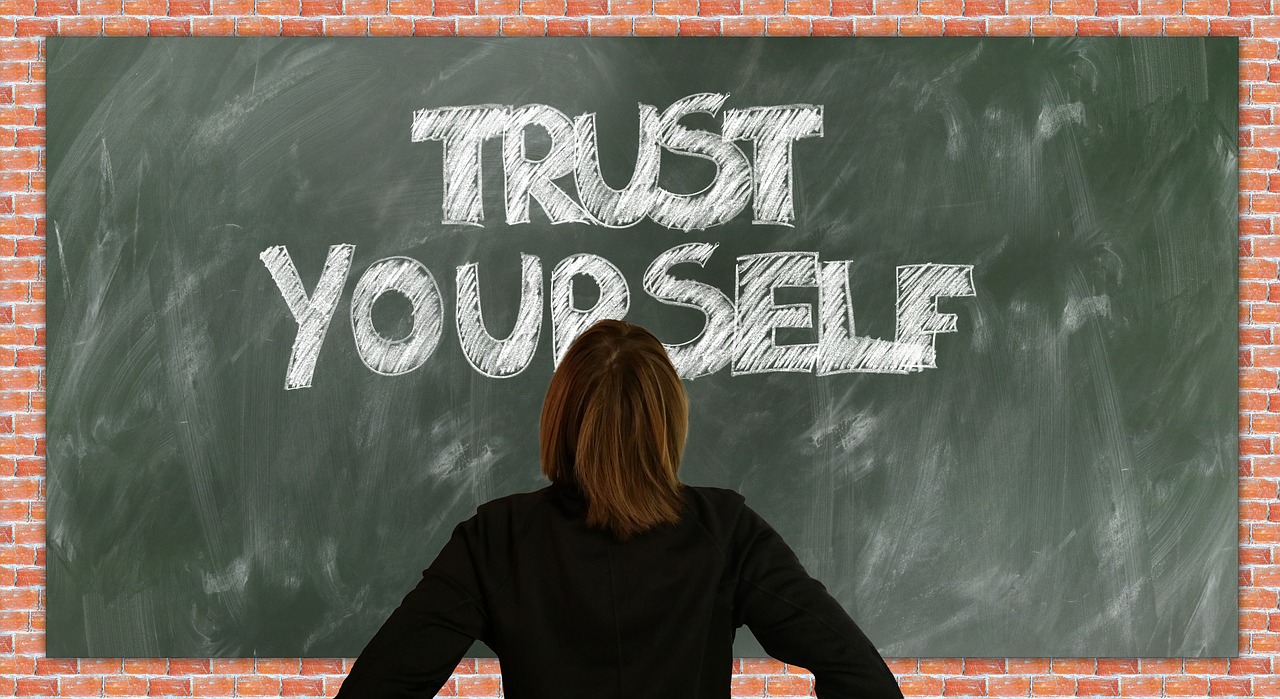
Memory and Consciousness
Memory and consciousness are intricately linked, forming a dynamic duo that influences our daily experiences and shapes our identities. Imagine consciousness as a stage, where memories play the actors, bringing life to our thoughts and actions. Without memory, our consciousness would be like a blank canvas, devoid of context or meaning. When we reflect on our past, it’s our memories that provide the threads connecting us to various experiences, emotions, and lessons learned. But how exactly does memory impact our conscious thought processes?
To understand this relationship, we need to consider the different types of memory: short-term, long-term, and working memory. Each type plays a unique role in how we experience consciousness:
| Type of Memory | Description | Role in Consciousness |
|---|---|---|
| Short-term Memory | Temporary storage of information for immediate use. | Helps us process current experiences and make quick decisions. |
| Long-term Memory | Storage of information over extended periods. | Shapes our identity by providing a narrative of our life experiences. |
| Working Memory | Active processing of information in the moment. | Enables us to manipulate information and solve problems. |
These memory types work together, influencing our conscious awareness and decision-making. For instance, when faced with a choice, our short-term memory helps us evaluate immediate options, while our long-term memory provides context based on past experiences. This interplay allows us to navigate life's complexities more effectively. But what happens when our memory falters? When we forget something important, it can feel like a piece of our consciousness has vanished, leaving us disoriented.
Moreover, the process of recalling memories can also alter our consciousness. Have you ever noticed how a simple song can transport you back to a specific moment in time? This phenomenon, known as associative memory, highlights how our conscious experience can shift dramatically based on the memories we access. In this way, memory acts as a lens through which we view the world, coloring our perceptions and influencing our emotional states.
Interestingly, the relationship between memory and consciousness is not just about recalling the past; it also shapes our future. The memories we hold can guide our decisions, helping us to avoid past mistakes or replicate successes. This forward-looking aspect of memory is essential for personal growth and development. By reflecting on our experiences, we can cultivate a deeper understanding of ourselves and our place in the world.
In conclusion, memory is a fundamental component of consciousness, providing the framework through which we interpret our experiences. It enriches our conscious awareness, allowing us to connect with our past, navigate our present, and shape our future. As we continue to explore the depths of consciousness, recognizing the pivotal role of memory will enhance our understanding of what it truly means to be aware.
- How does memory affect our identity? Memory shapes our identity by providing continuity and context to our experiences, allowing us to understand who we are over time.
- Can we improve our memory? Yes, techniques such as mindfulness, mnemonic devices, and regular mental exercises can enhance memory retention and recall.
- What role does emotion play in memory? Emotions significantly influence what we remember; emotionally charged events are often recalled more vividly than neutral ones.

Altered States of Consciousness
Altered states of consciousness (ASC) provide a fascinating glimpse into the complexities of our mind. These states can be induced by various factors, including meditation, hypnosis, dreaming, and even the use of certain substances. Each of these experiences can transform our perception of reality, challenge our understanding of awareness, and expand our consciousness in unexpected ways.
When we think about altered states, we often imagine the vivid, surreal landscapes of our dreams or the euphoric highs induced by certain drugs. However, the reality is much more nuanced. For instance, during meditation, individuals may achieve a profound sense of clarity and peace, as if stepping outside the chaos of everyday life. On the other hand, dreaming can serve as a playground for our subconscious, where the boundaries of reality blur, allowing for creative problem-solving and emotional processing.
To better understand how these altered states function, let’s consider a few common types:
- Dream States: During sleep, particularly in the REM phase, our brain engages in a unique form of consciousness that can be rich with imagery and emotion.
- Hypnosis: This state allows individuals to access their subconscious mind, often leading to heightened suggestibility and focused attention.
- Drug-Induced States: Substances like psychedelics can dramatically alter perception, often leading to experiences of interconnectedness or profound insights.
- Flow States: Achieved during activities that fully engage our skills and attention, such as sports or creative endeavors, flow states can lead to a sense of timelessness and deep satisfaction.
These altered states can be both enlightening and disorienting. For instance, while psychedelics can open doors to new perspectives, they can also evoke feelings of fear or confusion. Similarly, while meditation can lead to deep insights, it may also bring unresolved emotions to the surface. This duality highlights the importance of approaching these experiences with caution and respect.
Moreover, understanding altered states of consciousness can have practical implications for our daily lives. For example, tapping into flow states can enhance productivity and creativity, while mindfulness practices can improve mental health and emotional regulation. The key lies in recognizing that these states are not merely escapes from reality; they are avenues to explore the depths of our consciousness and enhance our overall experience of life.
In conclusion, altered states of consciousness serve as a reminder of the vast potential of the human mind. By exploring these states, we gain valuable insights into our perceptions, emotions, and ultimately, our sense of self. Whether through the lens of science, psychology, or personal experience, the exploration of altered states invites us to question our understanding of consciousness and embrace the mysteries that lie within.
- What are altered states of consciousness? Altered states of consciousness refer to any condition that differs significantly from normal waking consciousness, often characterized by changes in perception, emotion, and cognition.
- How can I experience altered states of consciousness? You can experience altered states through various methods, such as meditation, deep relaxation, hypnosis, or even engaging in creative activities that promote flow.
- Are altered states of consciousness safe? While many altered states can be safe and beneficial, some, particularly those induced by substances, can carry risks. It's essential to approach these experiences with caution and awareness.
- Can altered states of consciousness lead to personal growth? Yes, many individuals report that exploring altered states can lead to profound insights, emotional healing, and a deeper understanding of themselves.
Frequently Asked Questions
- What is consciousness?
Consciousness refers to our awareness of ourselves and our environment. It's the state of being awake and aware of our thoughts, feelings, and surroundings. Philosophically, it encompasses various interpretations, including the subjective experience of being aware.
- How does consciousness exist on a spectrum?
Consciousness isn't a one-size-fits-all concept; it exists on a spectrum ranging from basic sensory awareness to complex reflective thought. For instance, when you're simply aware of a sound, that's a basic level, but when you start to analyze that sound's significance, you're engaging in higher-order thinking.
- What is the difference between the subconscious and conscious mind?
The conscious mind is what you're actively aware of at any given moment, while the subconscious mind operates below the surface, influencing your thoughts and actions without your direct awareness. Think of it like an iceberg, where only a small part is visible above water, while the majority remains hidden beneath.
- How can I enhance my awareness of consciousness?
Practices like mindfulness and meditation can significantly enhance your awareness of consciousness. These techniques help you tune into your thoughts and feelings, allowing for greater self-awareness and a deeper understanding of your conscious experiences.
- What role do emotions play in consciousness?
Emotions are deeply intertwined with our conscious experience. They influence how we perceive reality and make decisions. For example, when you're happy, you might see the world in a more positive light, while sadness can cloud your judgment.
- Why is emotional awareness important?
Being aware of your emotions is crucial for mental health. It allows you to understand your feelings better and regulate them effectively. This awareness can lead to healthier relationships and improved decision-making.
- How do altered states of consciousness affect our understanding?
Altered states, such as those experienced during dreams or under the influence of substances, can challenge our traditional understanding of consciousness. They provide unique insights into the nature of awareness, revealing that our perception can drastically shift under different conditions.














